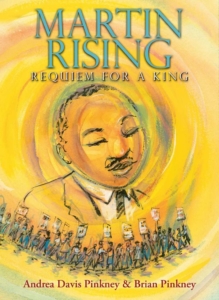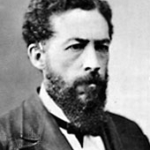Why People Rioted After Martin Luther King, Jr.’s Assassination
Photo: Onlookers watch as a Chicago storefront building burns during riots in the wake of Martin Luther King Jr’s assassination, 1968. (Credit: Lee Balterman/The Life Picture Collection/Getty Images)
(History.com) Every night in November 1968, National Guardsmen circled the streets in Wilmington, Delaware, armed with loaded rifles and ready to put down racial violence in the city’s most impoverished neighborhoods. Every so often, they’d stop to hassle black residents, using racial slurs to refer to the people they’d been sent to the city to subdue.
Their job was to stop riots and looting from breaking out after the assassination of Martin Luther King, Jr.—an event that had taken place seven months earlier. Though the city’s black residents had rioted briefly after King’s murder and the mayor had requested a National Guard presence, the city was now at peace. Nonetheless, Delaware’s governor, Charles Terry, was convinced its black residents would use any chance they could get to instigate more violence, and asked the National Guard to stay.
Lasting a full year, the occupation of Wilmington was the longest military occupation of an American city in history—and the most extreme response to riots that broke out in over 100 American cities after King’s murder on April 4, 1968. It only concluded with the election of a new governor in January 1969. (more)
Related: (Opinion, Los Angeles Times) Martin Luther King’s death tore America apart. We still can’t reckon with African American demands for justice
African-American history for young readers
Each time the enduring story of Dr. Martin Luther King Jr. is told, it engages a new audience and a new generation of readers.
His life, and those of countless other black humanitarians and activists, are an important part of American history.
The latest narrative of the slain civil rights leader and 1964 Nobel Peace Prize winner is “Martin Rising: Requiem for a King,” (Scholastic Press, $19.99) by author Andrea Davis Pinkney, with her illustrator husband, Brian Pinkney. While the book chronicles the assassination of King, it focuses more on his reason for being in Memphis in 1968: to support the city’s sanitation workers in their fight for equality and fair work conditions.
“It’s a story that young people can relate to today with respect to coming together as a group for a cause that you believe in,” Andrea said. “It’s a message that prevails for all kinds of children and all kinds of readers everywhere.” (more)
Remembering Mamie ‘Peanut’ Johnson, the First Woman to Take the Mound as a Major-League Pitcher
The Negro Leagues trailblazer has died at 82. Barred from trying out for a segregated female league, she made her mark playing alongside men
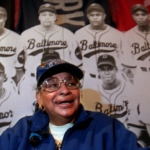
Mamie Johnson photographed on February 14, 1998, at the Babe Ruth Museum in Baltimore. (AP Photo/Khue Bui)
Mamie Johnson, one of three women to play in the Negro League, and the only woman to take the mound as pitcher, has died at the age of 82. The history-making ballplayer died on December 18 at a hospital in Washington. D.C. The cause of death was a “heart ailment,” Johnson’s stepdaughter, Yvonne Livingston, told Matt Schudel of the Washington Post.
Johnson, nicknamed “Peanut” for her tiny stature, was born in Ridgeway, South Carolina, in 1935. She started playing ball at an early age, improvising with makeshift baseballs fashioned from rocks, masking tape and twine. “I played with the fellows most of the time because the girls did what the boys did, because there was nothing else to do,” Johnson told the Associated Press in a 1998 interview. “You got a chance to do just about anything you wanted to do, and pitching was my thing.” (more)
Black history briefs
(Clarion-Ledger, Jackson, Ms.)
April 2, 1855: John Mercer Langston became the first African American elected to public office, serving as a town clerk in Brownhelm, Ohio. A year earlier, he had been the first African American admitted to the Ohio bar. He founded the law school at Howard University, and in 1890, he became the first African American from Virginia to serve in the U.S. House. His grandnephew was Langston Hughes.
April 4, 1928: Poet, author, playwright, film director and activist Maya Angelou was born in St. Louis. In the 1960s, she joined the civil rights movement and served as a coordinator for Martin Luther King Jr. She became a poet and author, writing more than a dozen books, including her best-selling memoir, “I Know Why the Caged Bird Sings.” In 1993, she recited her poem, “On the Pulse of Morning” at President Bill Clinton’s inauguration. Five years later, she made her feature film directorial debut with “Down In the Delta,” starring Alfre Woodard and Wesley Snipes. She died in 2014.
April 5, 1856: Booker T. Washington, founder of the Tuskegee Institute, was born in Virginia. Washington believed it was best for African Americans to learn a trade and questioned them challenging the Jim Crow system. “The wisest among my race understand that the agitation of questions of social equality is the extremist folly,” he said. He was popular with white audiences but drew criticism from African-American contemporaries such as Frederick Douglass. Washington became the first African American to dine at the White House.
April 7, 1885: Granville T. Woods, known as “The Black Edison,” invented a technology called “telegraphony” that combined telegraphs and telephones, enabling telegraph operators to send messages without using Morse code. Bell Telephone Co. bought the technology, enabling Woods to become a full-time inventor. He later invented a railway induction telegraph, allowing trains to communicate with each other and stations, and patented an electric railway.
April 7, 1915: Billie Holiday was born Eleanor Fagan in Baltimore and went on to become one of the greatest jazz singers of all time. Her unique voice “changed the art of American pop vocals forever,” one critic said. Diana Ross portrayed her in the 1972 film, “Lady Sings the Blues.” In 1987, Holiday was posthumously awarded the Grammy Lifetime Achievement Award.
TIPHC Bookshelf
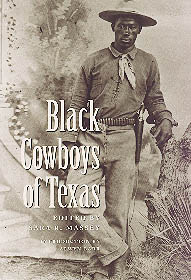 Published scholarship on black history in Texas is growing and we’d like to share with you some suggested readings, both current and past, from some of the preeminent history scholars in Texas and beyond. We invite you to take a look at our bookshelf page – including a featured selection – and check back as the list grows. A different selection will be featured each week. We welcome suggestions and reviews. This week, we offer, “Black Cowboys of Texas,” edited by Sara R. Massey.
Published scholarship on black history in Texas is growing and we’d like to share with you some suggested readings, both current and past, from some of the preeminent history scholars in Texas and beyond. We invite you to take a look at our bookshelf page – including a featured selection – and check back as the list grows. A different selection will be featured each week. We welcome suggestions and reviews. This week, we offer, “Black Cowboys of Texas,” edited by Sara R. Massey.
In the early days of Texas, the work of the cowhand was essential to the newly arrived settlers building a life on the frontier. The story of the Anglo cowboys who worked the ranches of Texas is well known, but much more remains to be discovered about the African American cowhands who worked side-by-side with the vaqueros and Anglo cowboys.
The cowboy learned his craft from the vaqueros of New Spain and Texas when it was the northern territory of Mexico, as well as from the stock raisers of the south. Such a life was hardly glamorous. Poorly fed, underpaid, overworked, deprived of sleep, and prone to boredom and loneliness, cowboys choked in the dust, were cold at night, and suffered broken bones in falls and spills from horses spooked by snakes or tripped by prairie dog holes. Work centered on the fall and spring roundups, when scattered cattle were collected and driven to a place for branding, sorting for market, castrating, and in later years, dipping in vats to prevent tick fever.
African American cowboys, however, also had to survive discrimination, bigotry, and prejudice. The lives of these cowhands tell a story of skill and grit, as they did what was necessary to gain the trust and respect of those who controlled their destiny. That meant being the best—at roping, bronc busting, taming mustangs, calling the brands, controlling the remuda, or topping off horses.
From scattered courthouse records, writings, and interviews with a few of the African American cowhands who were part of the history of Texas, Sara Massey and a host of writers have retrieved the stories of a more diverse cattle industry than has been previously recorded.
Twenty-five writers here recount tales of African Americans such as Peter Martin, who hauled freight and assisted insurgents in a rebellion against the Mexican government while building a herd of cattle that allowed him to own (through a proxy) rental houses in town. Bose Ikard, a friend of Charles Goodnight, went on Goodnight’s first cattle drive opening the Goodnight-Loving Trail. Johanna July, a Black Seminole woman, had her own method of taming horses in the Rio Grande for the soldiers at Fort Duncan.
These cowhands, along with others across the state, had an important role that too long has been omitted from most history books. By telling their stories, Black Cowboys of Texas provides an important contribution to Texas, Western, and African American history.
This Week in Texas Black History
Apr 2
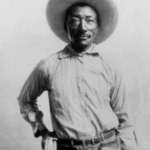 On this date in 1932, Bill Pickett, the cowboy who invented the technique of “bulldogging” steers, passed away after being kicked in the head by a horse. On his radio show, Pickett’s friend Will Rogers announced the funeral at the 101 Ranch, near Ponca City, Okla., commenting: “Bill Pickett never had an enemy, even the steers wouldn’t hurt old Bill.” Known as the “Dusky Demon,” Pickett was a native of Taylor, northeast of Austin. In 1971, he became the first black man elected to the National Cowboy Hall of Fame and Western Heritage Center in Oklahoma. In 1993, the U.S. Postal Service honored him as part of its Legends of the West series of stamps.
On this date in 1932, Bill Pickett, the cowboy who invented the technique of “bulldogging” steers, passed away after being kicked in the head by a horse. On his radio show, Pickett’s friend Will Rogers announced the funeral at the 101 Ranch, near Ponca City, Okla., commenting: “Bill Pickett never had an enemy, even the steers wouldn’t hurt old Bill.” Known as the “Dusky Demon,” Pickett was a native of Taylor, northeast of Austin. In 1971, he became the first black man elected to the National Cowboy Hall of Fame and Western Heritage Center in Oklahoma. In 1993, the U.S. Postal Service honored him as part of its Legends of the West series of stamps.
Apr 3
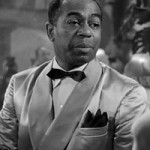 In 1886, musician Arthur “Dooley” Wilson was born on this day in Tyler. Wilson is most notably known for his role as “Sam,” the piano player in the Humphrey Bogart film, “Cassablanca,” and the target of the famous line, “Play it again, Sam,” in reference to the song, “As Time Goes By.” Ironically, Wilson was actually a drummer and couldn’t play piano. In the film, he mimicked the hand movements of an off-screen pianist. Wilson also appeared on Broadway, including the play, “Cabin in the Sky.”
In 1886, musician Arthur “Dooley” Wilson was born on this day in Tyler. Wilson is most notably known for his role as “Sam,” the piano player in the Humphrey Bogart film, “Cassablanca,” and the target of the famous line, “Play it again, Sam,” in reference to the song, “As Time Goes By.” Ironically, Wilson was actually a drummer and couldn’t play piano. In the film, he mimicked the hand movements of an off-screen pianist. Wilson also appeared on Broadway, including the play, “Cabin in the Sky.”
Apr 3
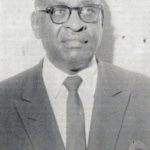 In 1944, on this day, the U.S. Supreme Court rules in Smith v. Allwright that Texas’ “White primaries” could not exclude black voters. Civil Rights activist Dr. Lonnie Smith, a dentist, had attempted to vote in the 1940 Democratic Primary but was denied a ballot at his Houston precinct because voting was open only to whites. With help from the NAACP, Smith filed a suit that reached the U.S. Supreme Court which ruled in his favor, opening primary voting to all eligible Texans.
In 1944, on this day, the U.S. Supreme Court rules in Smith v. Allwright that Texas’ “White primaries” could not exclude black voters. Civil Rights activist Dr. Lonnie Smith, a dentist, had attempted to vote in the 1940 Democratic Primary but was denied a ballot at his Houston precinct because voting was open only to whites. With help from the NAACP, Smith filed a suit that reached the U.S. Supreme Court which ruled in his favor, opening primary voting to all eligible Texans.
Apr 4
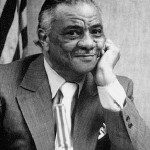 On this day in 1974, Oscar DuConge (pronounced “dew-con-jay”) was elected Waco’s first African American mayor. Born in Pass Christian, Miss., the ninth of 14 children, DuConge grew up in New Orleans and graduated from Xavier University in 1931 with a degree in sociology. He moved to Waco in September 1948 following World War II and serving in the Army. He rose to political prominence when he was elected to the Waco City Council in 1972.
On this day in 1974, Oscar DuConge (pronounced “dew-con-jay”) was elected Waco’s first African American mayor. Born in Pass Christian, Miss., the ninth of 14 children, DuConge grew up in New Orleans and graduated from Xavier University in 1931 with a degree in sociology. He moved to Waco in September 1948 following World War II and serving in the Army. He rose to political prominence when he was elected to the Waco City Council in 1972.
Apr 4
 Paul Quinn College was founded by a small group of African Methodist Episcopal preachers in Austin on this day in 1872. The school was relocated to Waco in 1877 and then to Dallas in 1990. The school is the oldest liberal arts college for African Americans in Texas and was named after William Paul Quinn who was A.M.E. Bishop of the Western States.
Paul Quinn College was founded by a small group of African Methodist Episcopal preachers in Austin on this day in 1872. The school was relocated to Waco in 1877 and then to Dallas in 1990. The school is the oldest liberal arts college for African Americans in Texas and was named after William Paul Quinn who was A.M.E. Bishop of the Western States.
Apr 5
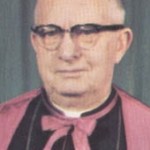 Six weeks before the U.S. Supreme Court decision in Brown v. Board of Education, Archbishop Robert Luceyannounced on this day in 1954 that all of San Antonio’s parochial schools and the city’s two Catholic colleges would be integrated.
Six weeks before the U.S. Supreme Court decision in Brown v. Board of Education, Archbishop Robert Luceyannounced on this day in 1954 that all of San Antonio’s parochial schools and the city’s two Catholic colleges would be integrated.
Apr 6
Jazz pianist and black activist Horace Tapscott was born this day in Houston in 1934. By age six he had become a competent pianist. His family moved to Los Angeles in 1943 and Tapscott began his career and would play with Lionel Hampton though primarily as a trombonist, and would be a member of Motown Records’ West Coast band, backing such groups as the Supremes. Tapscott founded the Pan Afrikan Peoples Arkestra, also known as the Ark, a collective group dedicated to preserving and developing African-American musical traditions and promoting cultural and musical education. It also distributed free food to families in Watts and made available meeting space for black radicals such as Stokely Carmichael and H. Rap Brown. Tapscott released fourteen albums.
Apr 7
On this day in 1954, All-Pro running back Tony Dorsett was born in Rochester, Pa. At the University of Pittsburgh, Dorsett won the 1976 Heisman Trophy and was a first round pick (No. 2 overall) by the Dallas Cowboys in the 1977 NFL Draft. He was Offensive Rookie of the Year and in 1994 was inducted to both the Pro Football and College Football halls of fame. That same year, he was also enshrined in the Texas Stadium Ring of Honor. Dorsett rushed for 12,739 yards (8th all-time) and 77 touchdowns in his 12-year career. His 99-yard touchdown run on January 3, 1983 against the Minnesota Vikings is the longest run from scrimmage in NFL history. See the run here.s.
Blog: Ron Goodwin, Ph.D., author, PVAMU history professor
Ron Goodwin is an assistant professor of history at Prairie View A&M University. Even though he was a military “brat,” he still considers San Antonio home. Like his father and brother, Ron joined the U.S. Air Force and while enlisted received his undergraduate degree from Texas Lutheran University in Seguin, Texas. After his honorable discharge, he completed graduate degrees from Texas Southern University. Goodwin’s book, Blacks in Houston, is a pictorial history of Houston’s black community. His most recent book, Remembering the Days of Sorrow, examines the institution of slavery in Texas from the perspective of the New Deal’s Slave Narratives.
Recent Posts
Maybe they were right
Historians sometimes disagree as to the motives of the American Revolution and the development of the 1787 Constitution that still guides our broader society. Were the Founding Fathers willing to commit treason to protect their money? Maybe. When they sat down to amend the Articles of Confederation they ended with a new Constitution that presented
Wakanda Forever — Part 1
Ok, let’s begin by acknowledging that Wakanda is a fictional country in Africa. In the Marvel comics universe, it’s home to the superhero Black Panther. But there is still something about it that has recently struck a nerve in the black community. The Black Panther movie debuted in February to positive reviews and by February
Submissions wanted
Historians, scholars, students, lend us your…writings. Help us produce the most comprehensive documentation ever undertaken for the African American experience in Texas. We encourage you to contribute items about people, places, events, issues, politics/legislation, sports, entertainment, religion, etc., as general entries or essays. Our documentation is wide-ranging and diverse, and you may research and write about the subject of your interest or, to start, please consult our list of suggested biographical entries and see submission guidelines. However, all topics must be approved by TIPHC editors before beginning your research/writing.
We welcome your questions or comments. Please contact Mr. Michael Hurd, Director of TIPHC, at mdhurd@pvamu.edu.

